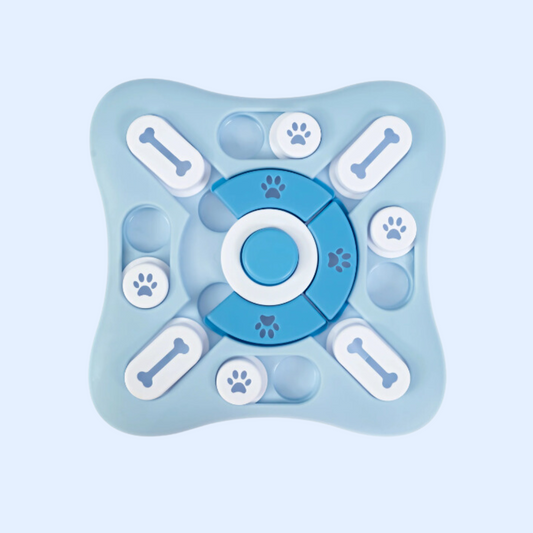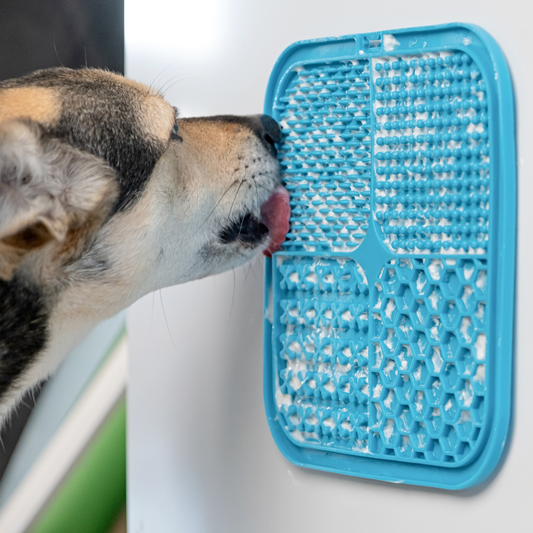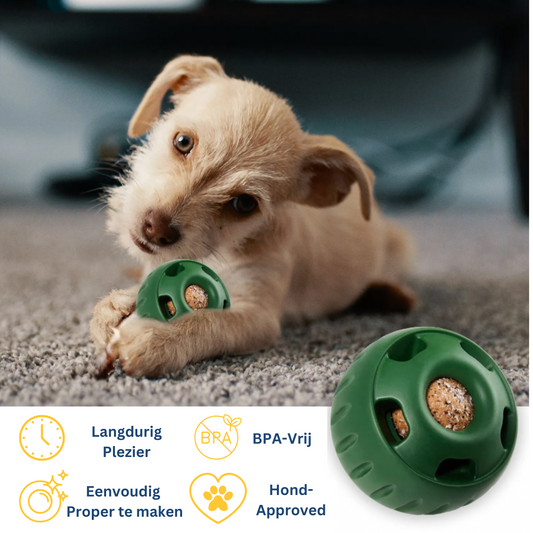Welcoming a new puppy into your family is a wonderful moment. That clumsy playfulness, the endless energy, and of course, that irresistible cuteness—it's hard not to fall in love. But along with all that joy comes the responsibility of ensuring your puppy grows and develops well. Just like human babies, puppies have specific nutritional needs to ensure they grow healthy and get the energy they need to thrive. In this comprehensive blog post, we'll discuss how to give your puppy a great start with the right nutrition and what you can do to ensure they develop optimally into a strong, healthy, and happy dog.
Special puppy food for healthy growth
The first few months of your puppy's life are crucial for their future health and well-being. During this period, growth and development are rapid, both physically and mentally. Therefore, it's crucial that your puppy gets the right nutrition, tailored to their age and needs.
Puppy food typically contains more calories, protein, fat, and essential nutrients than adult dog food, as puppies have much higher energy needs. These nutrients are essential for muscle growth, strong bone development, a healthy coat, and proper organ and brain function. Without the right nutrients, your puppy may grow too slowly or even develop developmental problems.
Tip: Choose high-quality food
Make sure you choose food from a high-quality brand specifically formulated for puppies. Cheap food can sometimes lack essential nutrients or contain fillers that aren't optimal for your puppy's growth.
Prevent complaints with the right nutrition
Besides growth and development, another important reason to choose special puppy food is to prevent digestive problems. Puppies have a more sensitive digestive system than adult dogs and can easily suffer from diarrhea, flatulence, or abdominal pain. This is because their stomachs and intestines are not yet fully developed. Choosing the right puppy food helps minimize these problems and ensures your puppy continues to feel good.
Tip: Make the transition gradually
If you plan to switch food, do so gradually. Mix the new food with the old food over a period of about a week. This gives your puppy's digestive system time to adjust and prevents stomach upsets.
What's in good puppy food?
Puppies have specific nutritional needs that differ from those of adult dogs. The right puppy food contains several essential ingredients crucial for their growth and development:
- Proteins: These are necessary for building muscle and tissue. Puppy food often contains more protein than adult dog food. It's important that these proteins are high-quality and easily digestible, so your puppy's body can absorb them without losing much energy.
- Calcium and phosphorus: These minerals are essential for building a strong skeleton. A calcium deficiency can lead to weak bones, while an excess can cause abnormal growth or skeletal problems. Therefore, it's important to get the ratios of these minerals just right.
- Vitamins and antioxidants: Puppies receive many vitamins and antioxidants through their mother's milk during the first few weeks, which help build their immune systems. However, after four to twelve weeks, these reserves are depleted. Good puppy food contains sufficient amounts of these nutrients to support your puppy's immune system.
Tip: Watch out for artificial additives
Avoid puppy food with too many artificial additives, such as colorings and flavorings. Natural ingredients are better for your puppy's health and reduce the risk of allergies or other adverse reactions.
How much and how often should a puppy eat?
The amount of food your puppy needs depends on their age, breed, and activity level. A good balance is crucial, however. Too much protein can lead to obesity, while too much calcium and phosphorus can cause stunted growth. Therefore, it's important to carefully follow the feeding recommendations on the puppy food packaging.
Puppies have small stomachs and a sensitive digestive system. To prevent them from eating too much at once, it's wise to divide their food into several meals a day. The following feeding schedule applies to most puppies:
- Up to 6 months old: Divide the food into 3 to 4 small meals per day. This helps your puppy digest nutrients better and ensures a stable energy supply.
- From 6 months: You can gradually reduce the number of meals to two per day. This is a schedule often followed for adult dogs, but make sure your puppy has enough time to adjust to this change.
Tip: Use feeding puzzles or slow feeders
To prevent your puppy from eating too quickly, you can use slow feeders or puzzle toys where you hide their food. This slows down the eating process, stimulates their brain, and prevents them from swallowing too much air, which can reduce gas and stomach upset.
Conclusion
A good start in your puppy's life begins with the right nutrition. By choosing high-quality puppy food rich in protein, calcium, phosphorus, vitamins, and antioxidants, you lay the foundation for a healthy and happy dog. Be careful not to overfeed your puppy and spread their meals throughout the day to protect their sensitive stomach. With these tips, you'll give your new companion the best possible start in life and help them grow into a strong, energetic, and healthy dog.




